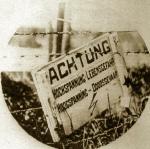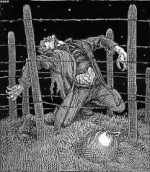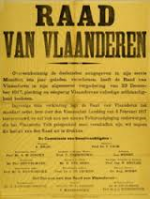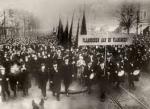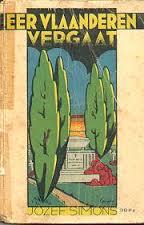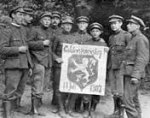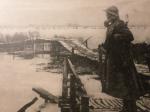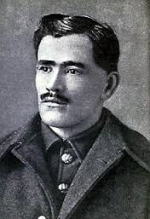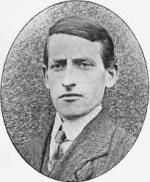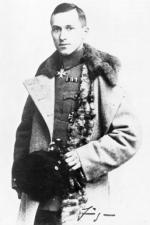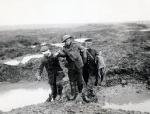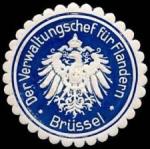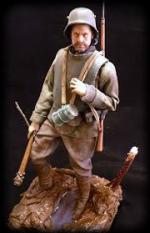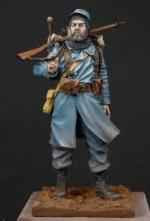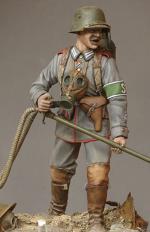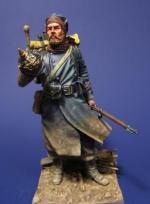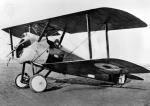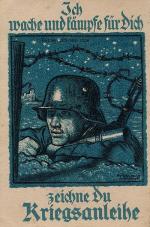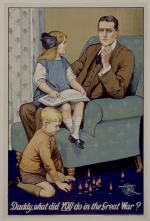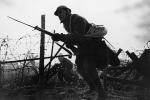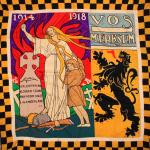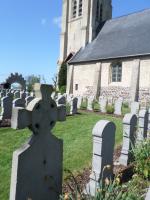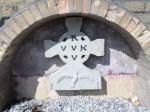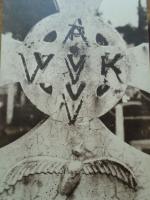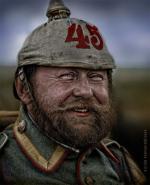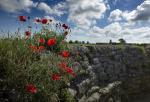|
Vandaag sta
ik in Zondag Frontpoëziedag graag
even stil bij het werk van de in Vlaanderen jammer genoeg nauwelijks bekende War Poet David Jones (1895-1974), een
Britse dichter met Welshe roots.
Deze schilder en graficus behoorde tot de eerste generatie van modernistische
schrijvers en dichters maar vergaarde nooit de literaire roem van collegas als
T.S. Eliot, Ezra Pound of James Joyce. In januari
1915 nam hij dienst als soldaat in het regiment Royal Welch Fusiliers, waarmee
hij van december 1915 tot maart 1918 aan het westelijke front diende. Oorspronkelijk
werd hij ingezet bij het Frans-Vlaamse La Bassée maar in de zomer van 1916 werd
hij ingezet bij de Slag aan de Somme. Tijdens deze gevechten werd hij ernstig
gewond aan zijn heup bij de strijd om Mametz Wood. Na zijn herstel belandde hij
in de Ieperse Salient waar zijn bataljon in reserve werd gehouden tijdens de
Derde Slag om Ieper. In het voorjaar van 1918 kwam een einde aan zijn militaire
engagement toen hij met Trench Fever werd
geëvacueerd. In januari 1919 werd hij eervol uit het leger ontslagen. Zijn indringende
en traumatische oorlogservaringen hadden een diepe impact op zijn latere
artistieke werk.
Hieronder
vindt u een fragment uit zijn in 1937 verschenen, sterk autobiografische bundel
In Parenthesis. Dit werk over de
Grote Oorlog wordt gekenmerkt door zijn voorliefde voor de oude Welshe poëzie.
Elk van de zeven hoofdstukken wordt immers ingeleid door een citaat uit het
epische gedicht Y Gododdin dat een
groep van 300 heldhaftige Welshe strijders herdenkt die door de Engelsen werden
afgeslacht tijdens de Slag van Catraeth. Dit fragment komt uit hoofdstuk 7, pag.
183-186:
Its difficult with
the weight of the rifle.
Leave itunder the oak.
Leave it for a salvage-bloke
let it lie bruised for a monument
dispense the authenticated fragments to the faithful.
Its the thunder-besom for us
its the bright bough borne
its the tensioned yew for a Genoese jammed arbalest
and a
scarlet square for a mounted mareschal, its that county-mob
back to back. Majuba mountain and Mons Cherubim and
spreaded mats for Sydney Street East, and come to Bisley
for a Silver Dish. Its R.S.M. OGrady says, its the soldiers
best friend if you care for the working parts and let us be av-
ing those springs released smartly in Company billets on wet
forenoons and clickerty-click and one up the spout and you
men must really cultivate the habit of treating this weapon with
the very greatest care and there should be a healthy rivalry
among youit should be a matter of very proper pride and
Marry it man! Marry it!
Cherish her, shes your very own.
Coax it man coax itits delicately and ingeniously made
its an instrument of precisionit costs us tax-payers,
moneyI want you men to remember that.
Fondle it like a grannytalk to itconsider it as you would
a friendand when you ground these arms shes not a rookys
gas-pipe for greenhorns to tarnish.
Youve known her hot and cold.
You would choose her from among many.
You know her by her bias, and by her exact error at 300, and
by the deep scar at the small, by the fair flaw in the grain,
above the lower sling-swivel
but leave it under the oak.
Slung so, it swings
its full weight. With you going blindly on
all paws, it slews its whole length, to hang at your bowed neck
like the Mariners white oblation.
You drag past the four bright stones at the turn of Wood
Support.
It is not to be
broken on the brown stone under the gracious
tree.
It is not to be hidden under your failing body.
Slung so, it troubles your painful crawling like a fugitives
irons.
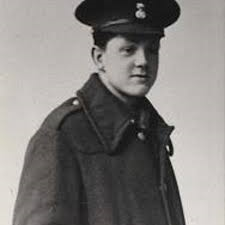
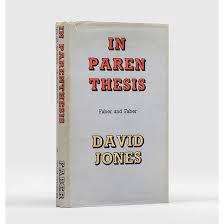
|


